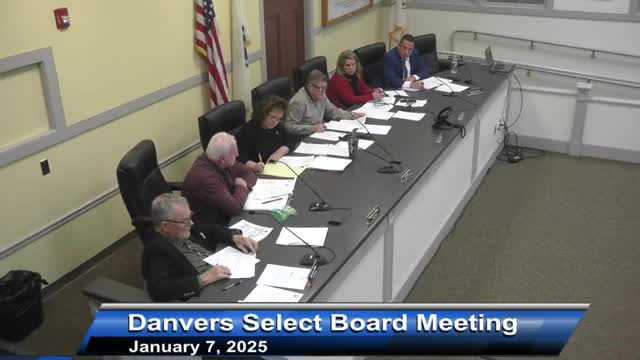Select Board favors keeping two Danvers seats on Beverly Airport Commission; explores advocacy options
Get AI-powered insights, summaries, and transcripts
Subscribe
Summary
After public discussion and testimony from Danvers’ airport commissioners, the board signaled consensus to retain its two appointed seats on the Beverly Airport Commission rather than accept annual pilot payments; members also agreed to pursue additional advocacy and research on whether Danvers can secure expanded representation.
The Select Board on Jan. 7 discussed whether Danvers should continue the longstanding arrangement that gives the town two representative seats on the Beverly Airport Commission in exchange for a yearly pilot payment (about $6,700). After public comment and remarks from Danvers’ airport commissioner William Kasawon and airport department representative Aaron Henry, the board favored retaining the town’s two seats and directed staff to explore options for stronger advocacy and potential charter changes to seek greater representation.
Town staff explained the arrangement dates to an agreement in the early 1990s and that the Beverly commission is a nine‑member body whose membership is determined by the City of Beverly. Aaron Henry, the town’s director of land use and community services and a long‑time Danvers airport commissioner, said the position presents an inherent tension: commissioners sworn to the Beverly commission have a fiduciary duty to manage the airport enterprise fund, even when residents want more aggressive mitigation or restrictions. Henry said recent commission work has improved the understanding of issues affecting the Danvers side of the field but cautioned that advocacy outside the commission structure may allow different, more confrontational strategies.
William Kasawon, one of Danvers’ appointed commissioners, told the board he takes the representative role seriously, has attended meetings and public actions on behalf of Danvers residents, and urged the town to retain representatives rather than accept the pilot payment. Several Select Board members suggested forming a town committee to pursue advocacy and monitoring of airport impacts and to consult with town council on whether Danvers could secure additional seats or changes in the commission’s composition.
Board members debated tradeoffs: some said the $6,700 pilot is small compared with the value of representation and the ability to raise issues and press for mitigation; others said more active advocacy outside the commission could be effective. Town staff cautioned that the arrangement is not codified in Beverly’s charter and that Beverly could alter its appointments in the future; staff recommended outreach to Beverly’s mayor and town counsel to gauge receptivity to expanded Danvers representation.
Ending
The board did not vote to forfeit seats or accept pilot payments; members signaled consensus to keep the two Danvers representatives, pursue outreach to Beverly officials and town counsel, and explore creating a local advocacy committee to pursue mitigation and potential charter changes for expanded representation.
